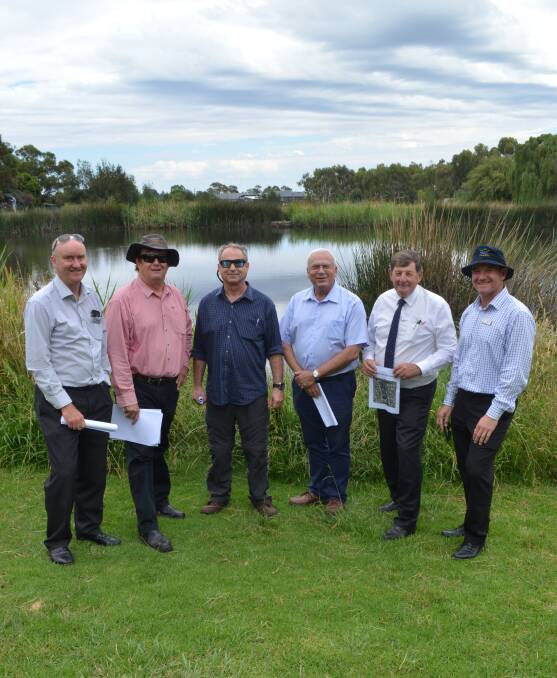
ORANGE’S pioneer stormwater harvesting system received international appraisal as Israeli water experts seek to learn from Australia’s water management and share their own drought measures.
Subscribe now for unlimited access.
$0/
(min cost $0)
or signup to continue reading
Delegates Shimon Tal and Noam Weisbrod met with Orange City Council’s water staff on Monday morning to tour the Somerset Wetlands and Suma Park Dam.
Mayor Reg Kidd said the wetlands were the equivalent of kidneys for stormwater.
“[They slow] the water down, filter it and eventually take it over to the filtration plant, or Suma Park Dam,” he said.
“Stormwater harvesting started and it was a bit controversial, everyone [said], ‘gee, yucky water being washed down with cigarette butts in it’, but that’s not how it works at all – it gets filtered all the way through, it goes through your normal filtration and it’s the way of the future.”
The mid-January rain contributed eight megalitres into the stormwater harvesting system, about a day’s worth of water for Orange.
Stormwater harvesting started and it was a bit controversial, everyone [said], ‘gee, yucky water being washed down with cigarette butts in it’, but that’s not how it works at all – it gets filtered all the way through, it goes through your normal filtration and it’s the way of the future.
- Reg Kidd
“It’s not your only solution, but it’s really important,” he said.
Israel has little surface water and its citizens rely on groundwater sources.
Mr Tal, who was formerly Israel’s water commissioner, said stormwater harvesting was already used, but using wetlands was something he wanted to study.
“We have such a plan but using sewerage effluent and it’s disposed in the stream and at the end of the stream before it goes into the sea, we pump the water and use it for agriculture,” he said.
“We have such a plan but we’re not doing it with stormwater.”
He said Australia had enough water and management was advanced, but felt more efficient water use in rural areas might be needed.
“Maybe you have to store it more for the dry periods, this is my impression,” he said.
Professor Weisbrod, who is an expert in hydrology at the Ben Gurion University of the Negev, said Israel had benefited from desalination plants, which provide 75 per cent of its drinking water via 131 kilometres of pipelines.
“Until 2004, there was no desalination in Israel,” he said.
“There are already five active desalination plants along the Mediterranean coast and when there is a good year, we’re using the desalinated water to recharge the aquifer and pay back for years of overpumping.”
DO YOU WANT MORE ORANGE NEWS?
Receive our free newsletters delivered to your inbox, as well as breaking news alerts. Sign up below …


